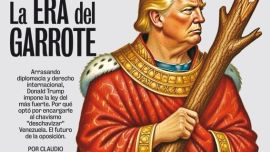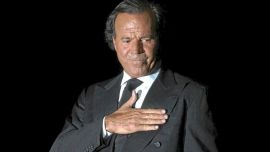Martín Lousteau voluntarily embodies one major failure of the ruling Cambiemos (Let’s Change) coalition. No, it is not the economy this time, although Lousteau is an economist. It is instead Cambiemos’ inability to be a real coalition, or at least one with some clear, defined rules of internal engagement.
Lousteau infuriated Mauricio Macri’s entourage this week by declaring in a press interview that “nobody should fear” internal competition within the ruling alliance. Context matters: he was talking from New Delhi, as a special guest on the president’s weeklong state trip to India, Vietnam and the United Arab Emirates. It was also just two days after Radical Civic Union (UCR) candidate Daniel Kroneberger trounced Carlos Mac Allister, the Casa Rosada’s gubernatorial hopeful, in primaries in La Pampa. What opportunistic timing, they cried from within Macri’s inner circle.
Lousteau was just stating the obvious, in a country where the obvious is not always well received. Cambiemos was born in early 2015, when Macri’s PRO party joined forces with Deputy Elisa Carrió’s Civic Coalition and the century-old, centrist Radical Civic Union. Its first and most important goal was to defeat the Peronist government of Cristina Fernández de Kirchner, whose candidate Daniel Scioli was the frontrunner to win the election.
But the coalition also had the more moral mission of introducing Republican principles into the country’s political manners. In 2015 in fact, Cambiemos held a primary featuring its three presidential hopefuls: Macri, Carrió and then-UCR chairman Ernest Sanz. The race was a token election, but real nonetheless: Macri got 81 percent of the votes, versus 11 and seven percent for Carrió and Sanz respectively. Expanding his support base proved to be crucial for Macri as he won the election by a thin margin, and most importantly, helped him to stand out fromthe other top challenger of the time, Peronist Sergio Massa.
But there was another race that year that was no joke: the mayoral election in Buenos Aires City, which is Macri’s true political powerbase. Lousteau, running on a centre-left coalition that included the Radicals, forced a second round against Macri’s heir-in-waiting Horacio Rodríguez Larreta. And the run-off vote, on July 19, 2015, was so close that it almost broke Macri’s presidential career: Rodríguez Larreta won by less than two percentage points, and Lousteau became the new rising star of Argentine politics.
Once victorious, Macri’s PRO swallowed its grudges and tried to assimilate Lousteau under its wing, giving him a luxurious political exile as Argentina’s ambassador to Washington. The economist did a neat job but quit less than two years later to run again in the City midterm elections, now as a member of the UCR. When PRO denied him internal competition, Lousteau instead ran under his own brand, called Evolution. He did not do that well this time out: he finished third with just over 10 percent of the votes.
Radicals are now keeping the Lousteau card up their sleeves, threatening to play it in order to request a presidential primary against Macri’s bid for re-election. Sanz, a Cambiemos founder but now semi-retired from politics, and UCR Chairman Alfredo Cornejo, the governor of Mendoza, have publicly endorsed the notion that the Radicals should field a ticket of their own. Although they know it would stand little to no chance, their argument is not electoral. It is political.
Over the last three-and-a-half years, Cambiemos has failed to evolve from its original electoral front into a governing coalition. It has only worked reasonably well at the parliamentary level, though that pre-dated the formation of the 2015 electoral front. Both Carrió and the Radicals, with no little reason, feel left out of the bigger (and the smaller) decisions taken by the government. The flamboyant Carrió, however, doesn’t let that hold her back, periodically bursting out and trying to set a handful of limits on government policy, in sensitive areas like justice policy and transparency.
Because they run three provinces and dozens of municipalities (including nine provincial capitals), the Radicals have predictably been more concerned about the economy of late – but they have had little say in policy and no formal place in which to put forward their views and vent their anger. In Macri’s favour, there is the fact that the Radicals do not have a reputable track record when it comes to managing the economy. Although some argue PRO has not done much better, being new to the job gives Macri some political leeway that allows him to keep his partners at arm’s length.
But with Macri leading an unpopular programme of austerity,
guided by the unpopular IMF, the Radicals have an incentive, a
reason to hold their ground and show themselves to be offering
something different from the government, at a relatively low cost.
It remains to be seen whether they will have the stamina to do
so. Lousteau would be the flagship of that effort.related news




















Comments